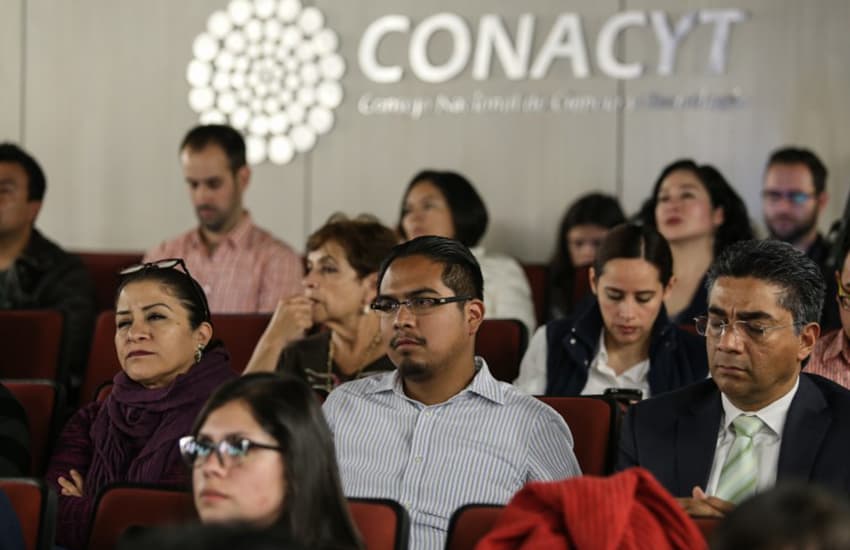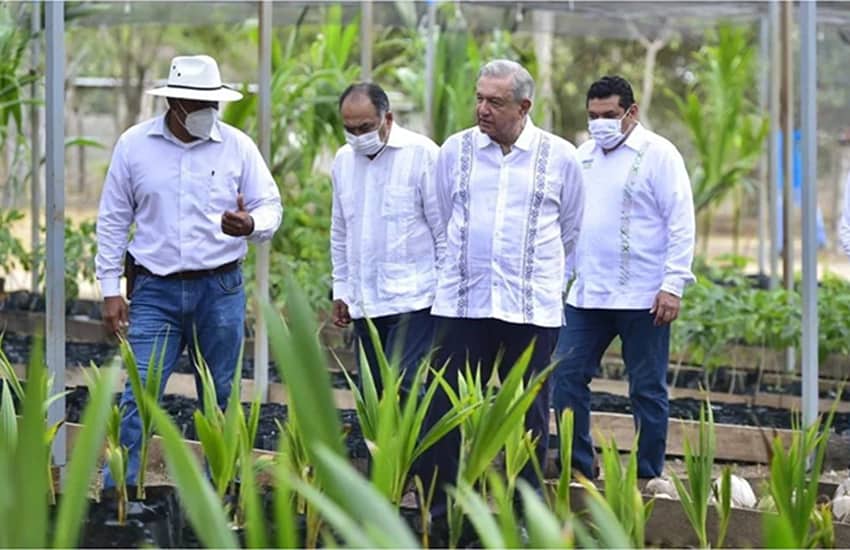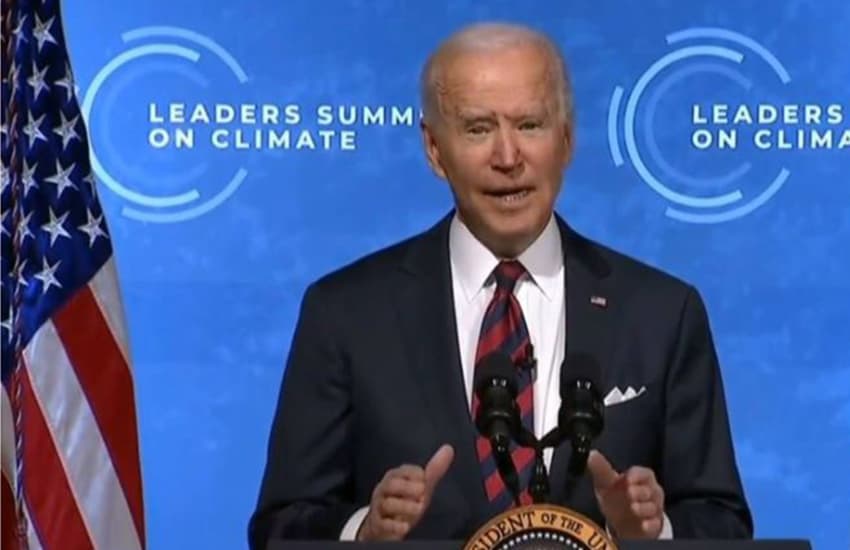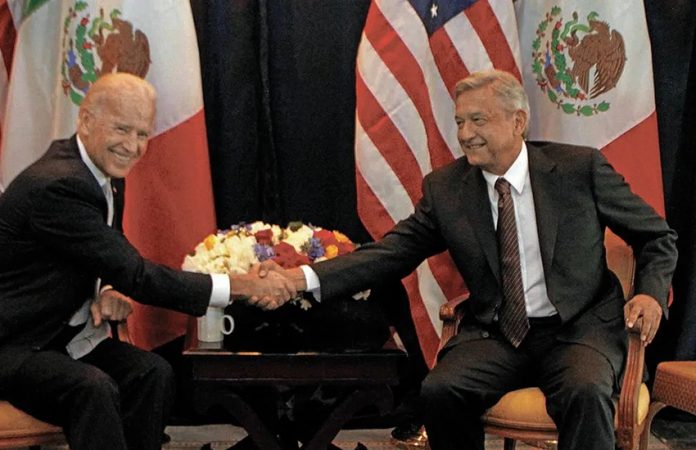“Probably nowhere in the world do two countries as different as Mexico and the United States live side by side.” — Alan Riding, Distant Neighbors, 1985
It is difficult to imagine in the modern history of Mexico and the United States two presidents as dissimilar as Andrés Manuel López Obrador and Joseph R. Biden. Their visions of their countries’ present and future could not be more different. This becomes crystal clear when examining their agendas and priorities.
Perhaps one of the few things these two men have in common is their political persistence: three times, both made presidential bids, and both were elected on their third try.
These two heads of state not only differ in substance but also in their ways. Throughout the three decades of his political life, Mr. López Obrador has been a polarizing figure, well-known for being both strident and divisive.
On the other hand, in 50 years of public service as a senator and as vice president to Barack Obama, Mr. Biden has proven to be a sensible and empathic politician, a master of compromise renowned for his soft skills.

Notwithstanding the different strengths and challenges facing Mexico and the U.S., there are substantive issues on which the two presidents differ, completely or in part, and which may largely define the sort of relationship that the two countries will have in the remaining four years of both presidents’ administrations.
Issues around immigration, drug trafficking, trade, the role of the private sector, their nations’ international responsibilities and the role of independent institutions, particularly those in a position to challenge government excesses — such as autonomous bodies, not-for-profit organizations and the media.
Divergences between the two presidents may be most starkly revealed by how they are addressing three prominent issues: the Covid-19 pandemic and ensuing economic fallout, science and transparency and the environment and climate change.
Amid the worst pandemic humanity has suffered through in a century, the human lives lost and the impact on financial systems in both the United States and Mexico have been devastating. Of the more than 3.2 million deaths worldwide due to Covid-19, nearly 600,000 have been in the U.S. and nearly 218,000 in Mexico — although the López Obrador administration recently admitted that, as of last March, there were actually 321,000 deaths in Mexico. Some estimates put the total figure closer to a 600,000.
Clearly distancing himself from the incompetent and shameful way his predecessor handled the pandemic, Mr. Biden boosted coronavirus testing, promoted the use of face masks and made decisions based on scientific evidence. In Biden’s first 100 days, his administration delivered 220 million vaccine shots.
As a result, today, 70% of Americans 65 years and older have been vaccinated, over half of all adults have gotten at least one jab and anybody older than 16 can be vaccinated.
The U.S. government also provided financial support to states, municipalities, small businesses and families all over the country — in fact, 85% of American households have already received cash assistance, and small businesses have been offered loans to reopen and avoid losing employees.
In contrast, the situation in Mexico could not be more different, nor more tragic. From the beginning, the government downplayed the pandemic, denied or ignored the scientific evidence of its seriousness and failed to substantially augment the number of tests, while the use of face masks was disincentivized.
And the economic support to those in need and to small businesses suffering from the crisis has been appallingly small. As of May 3, only around 12 million people have been vaccinated (Mexico’s population is 126 million) and 13 million jabs of the vaccine had been delivered, counting both first and second doses.
Mr. Biden reasserted his commitment to listening to science and to ensuring that decisions on public policies dealing with health, environment, climate change, etc. are communicated to people by trusted experts. He further pledged to boost trust, transparency and accountability on government actions and proposed to nearly triple U.S. science spending in the 2022 federal budget, raising it from 0.7% of GDP to close to 2%.
In contrast, during his administration’s first two years, Mr. López Obrador has devoted a good deal of time and energy to discrediting both science and scientists. In 2020, his government and his Morena party, which has a majority in Congress, extinguished 109 trusts, including those for international cooperation on science and technology, technological innovation, natural disasters, climate change and scientific and environmental research for education.
Mexico’s 2021 budget to support science, technology and innovation amounts to the equivalent of US $5.1 billion (just 0.38% of Mexico’s GDP). Of those funds, $1.3 billion were allocated to the National Council of Science and Technology (Conacyt), an institution established 50 years ago that is largely responsible for many of Mexico’s key scientific advances but now has lost the trust of many scientists and is languishing, isolated and politicized.

On the environment, President Biden has ordered a pause on licensing to exploit oil and gas on public lands and established an office for environmental justice at the White House. He has also pledged to protect 30% of U.S. land and coastal seas by 2030.
On April 22, at the Leaders Summit on Climate Change in Washington, D.C., Mr. Biden committed the U.S. to a reduction in greenhouse gases by at least 50% by 2030 — more than double the U.S. commitment in the 2015 Paris Agreement.
Furthermore, Biden proposed to Congress a federal investment of $1.7 trillion for work on climate and environmental justice over the next 10 years and a package of $2 trillion for infrastructure that supports the transition from fossil fuels to clean energy together with the promise to foster thousands of new green jobs.
After two years of his administration, it has become clear that the environment is not a priority for President López Obrador. The main federal environmental agencies (for biodiversity, forest, water and natural protected areas, as well as the climate change institute and the attorney general for environmental protection) have been all but dismantled.
The meager funds allocated to these agencies in 2021 are clear evidence of a lack of interest in environmental and climate change issues.
For example, while the highly distrusted Sembrando Vida (Sowing Life) federal program — which has the declared goal of reforesting 1 million hectares — was granted $1.4 billion, the Natural Protected Areas Commission (Conanp), the agency responsible for conserving biodiversity and environmental services on 91 million hectares of land and at sea across the country, received only $43.3 million, despite the fact that the bulk of Mexico’s amazing biodiversity occurs in areas that Conanp must oversee and protect.
Mr. López Obrador has favored his mammoth pet projects, all of which have been criticized by independent scientists for the huge environmental and social damages they could cause. These include the so-called Maya Train, which received $1.5 billion from the 2021 federal budget, and the building of the Dos Bocas oil refinery located in the president’s home state of Tabasco, to which $2.25 billion was allocated.
In fact, 11.6% of Mexico’s total budget passed by Congress in 2021 will go to fossil fuel production, and only 1.1% will be invested in climate change mitigation and adaptation — and 75% of that will go to natural gas transport, an activity that generates the same gases that warm the planet.
If nothing changes, Mexico will certainly miss its commitments as part of the Paris Agreement, which include reducing greenhouse gases by 22% and black carbon by 51%, reaching a peak in emissions in 2026 and reducing emissions thereafter and producing 35% of its energy from clean sources by 2024 and 43% by 2030.
There is still time for the government of Mexico to change course on the way it deals with the environment, but even being the optimists we are, we know that time is not on our side. There is, however, hope.
In the midterm national elections, taking place on June 6, perhaps most Mexicans will decide to vote for those candidates committed to taking care of their country’s immense natural resources — for their own benefit and for the benefit of their children.
We choose to believe that Presidents López Obrador and Biden will somehow succeed in overcoming their differences, at least on the environment, climate change and the pivotal role that science and scientists play in the prosperity of the two countries. At a time when humanity is confronting unprecedented health, economic, social and political challenges, a strong Mexico-U.S. partnership in these crucial areas would be a powerful message to their own citizens and to the world.

A message that even neighbors as dissimilar as we are can join forces for the common good.
Omar Vidal, a scientist, was a university professor in Mexico, a former senior officer at the UN Environment Program and a former director-general of the World Wildlife Fund-México.
Richard C. Brusca is a research scientist at the University of Arizona, former executive director of the Arizona-Sonora Desert Museum and author of over 200 research articles and 20 books.
